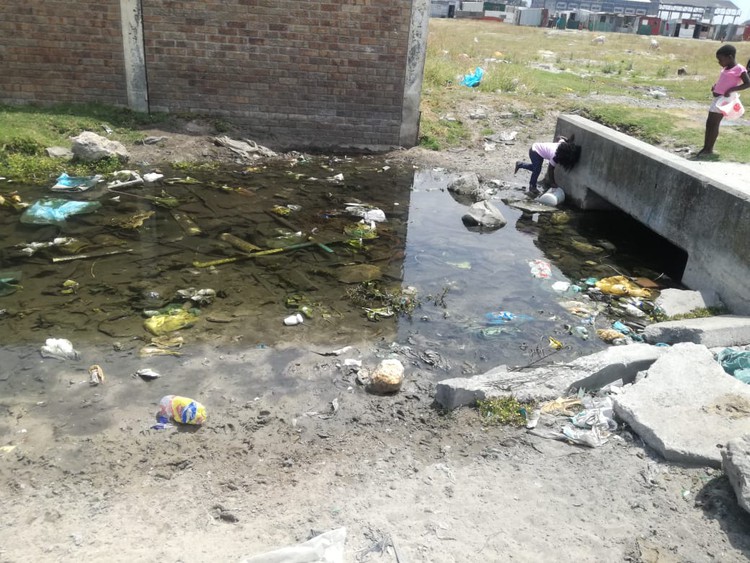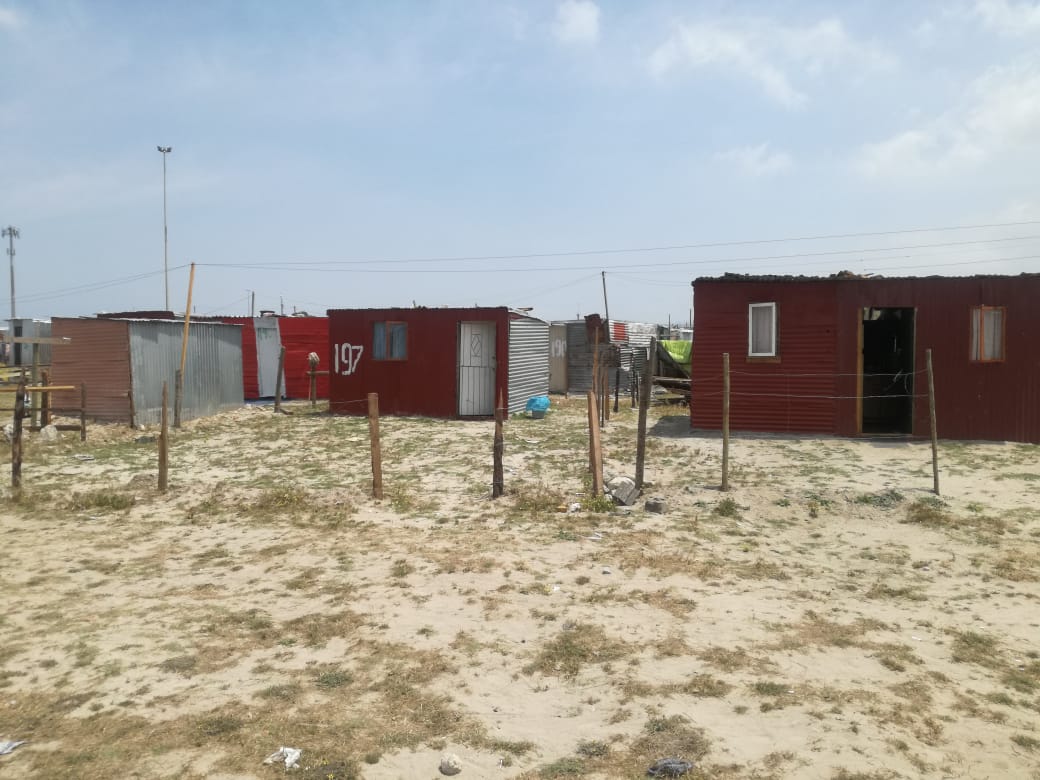
Some residents get their water from a dirty stream. Photo: Mary-Anne Gontsana
22 November 2018
Living in the new Ses’khona informal settlement in Philippi, without clean water, sanitation or electricity, is still better than living as a backyarder, say residents.
From just two shacks in January, Ses’khona (not to be confused with the organisation with the same name), situated on an open space at the back of the Philippi Plaza, has grown to 200 shacks. There is no electricity, no toilets and the residents get water from a dirty stream nearby.
Community leader Lindela Tatsi told GroundUp that residents’ shacks had been demolished several times.
The land is owned by Tranzcorp Property Holdings. When GroundUp phoned the number listed after a company register search we were told that the person responsible for the land was out of the country and would only be able to speak next week.
Tatsi said residents would not resist being moved.
“We are not here to start any trouble. We know full well that this is someone’s land and we can be removed at any time. All we ask is that we get moved to somewhere we can call home, somewhere with services like water and toilets.”
“All of us here are backyarders and most of us are unemployed. We could not afford paying rent anymore, so when we saw the opportunity of getting our own places here on this land, we took it”.

The Ses’khona settlement has grown to 200 shacks. Photo: Mary-Anne Gontsana
A gravel road cuts through the settlement. On the one side of the road is a small stream of water, filled with dirty plastic bags, old wood and bricks with slimy build up. This is where the residents get their water. On the other side of the road is the area residents use to dump their rubbish.
“We only have one tap here for the whole community. The water comes out slowly and in small amounts. This causes long queues so some of us just get water from the stream. We do not know where the water is coming from but it tastes and looks the same from the stream and the tap.”
“We do get sick from the water” said Tatsi.
For electricity, the residents have pulled wires from an electricity box on the other side of the open field. They use the same field as a toilet.
Resident Khulula Nquma said she moved to Ses’khona a few months after it was started because she could not pay rent any more. “I was a backyarder in Philippi and I used to pay rent of R350 a month. It would be a constant struggle every month to make that R350 and the landlord just did not understand when I said I did not have it.”
Nosicelo Jacobs, also a resident, said “All we want for now are basic services, with toilets being the most important.”
Together with the Social Justice Coalition, Ses’khona residents and other residents from other informal settlements nearby, have planned a march for Thursday 22 November where they will highlight their right to sanitation and water outside the Civic Centre.